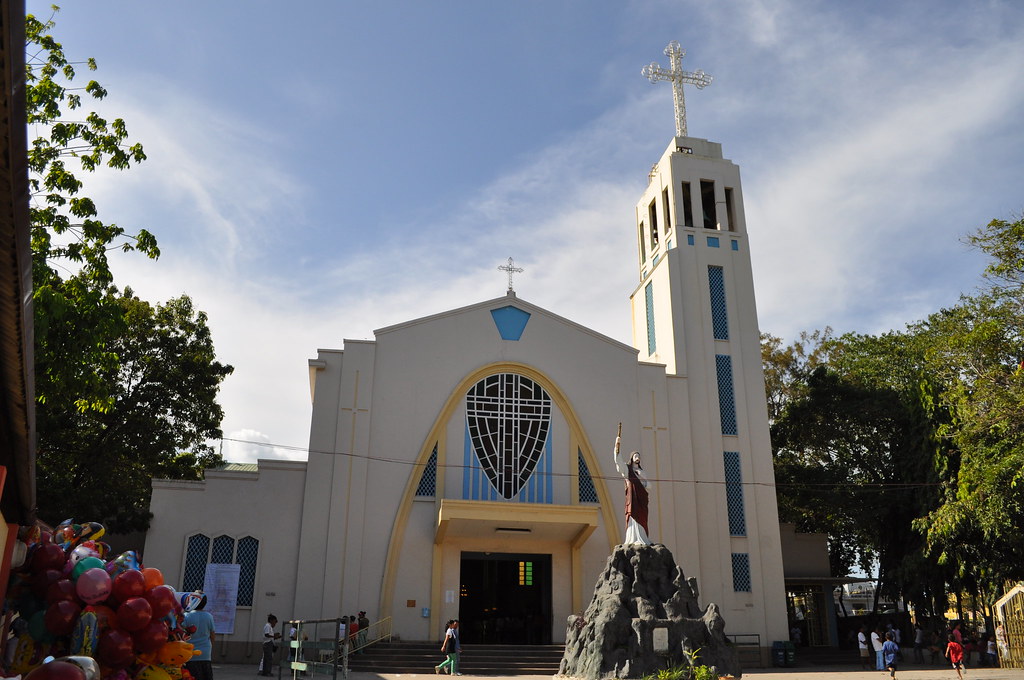As the cradle of Christianity in the Philippines, Cebu is home to some of the most remarkable and historic churches.
Cebu’s heritage churches offer a glimpse of the country’s colorful past with stunning life-sized statues, awesome stonework, world-class paintings, and magnificent altars.
The churches of Cebu attract thousands of tourists and devotees every year, especially during Lent. Here are some of them.

Cebu Metropolitan Cathedral
Mabini Street, Cebu City
The Cebu Metropolitan Cathedral is one of the oldest churches in Cebu which was built in 1565.
Construction of the cathedral took many years due to frequent interruptions brought about by lack of funds and other unexpected events such as the Moro wars.
The Cathedral boasts of a grand exterior of stone and concrete, high ceilings, beautiful chandeliers, and an ornamented altar.
Also known as the Metropolitan Cathedral and Parish of Saint Vitalis and of the Immaculate Conception, it is the ecclesiastical seat of the Metropolitan Archdiocese of Cebu in Cebu, Philippines.
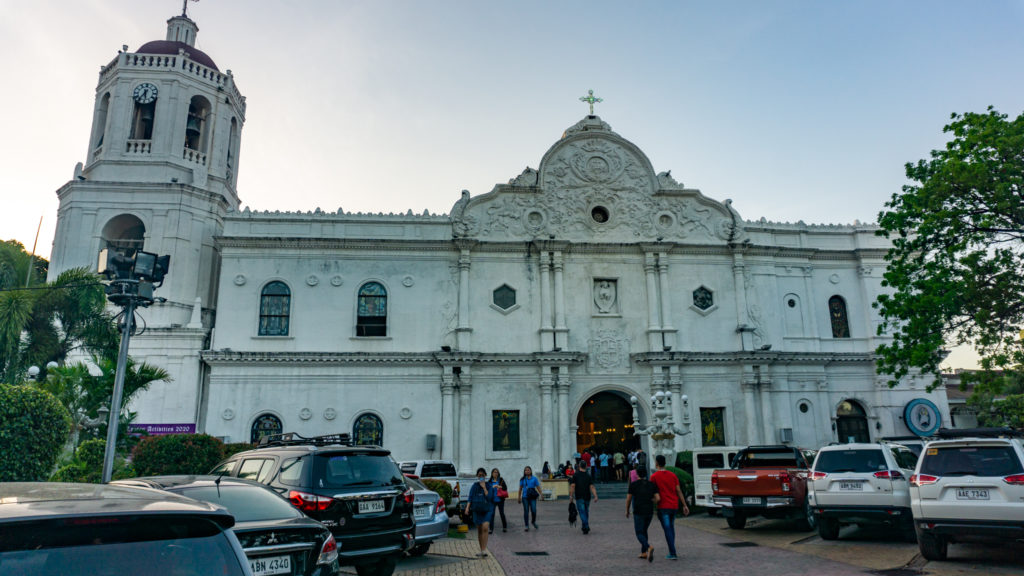
Wide view of the Cebu Metropolitan Cathedral. | CDN Digital File Photo
Basilica Minore del Sto. Niño
Pilgrim’s Center, Osmeña Blvd, Cebu City
Located in downtown Cebu, Cebu’s historical Basilica Minore del Sto. Niño is the oldest Catholic Church in Cebu. It dates back to the earliest years of the Augustinians in the Philippines.
The Basilica Minore del Sto. Niño is considered as one of the most iconic churches not just in Cebu but in the whole Philippines.
The Church is built on the exact spot where Spanish explorers found the Holy Child sculpture in 1565.
The convent and the Church of the Sto. Niño de Cebu was founded by Fr. Andres de Urdaneta on April 28, 1565, the very day the Legazpi-Urdaneta expedition arrived in Cebu.
Work for the church started in 1575 or 1576, and was finished in 1602, all shouldered by Don Gabriel Gonzalez and his wife Doña Catalina Sanchez, who were great devotees of the Santo Niño.
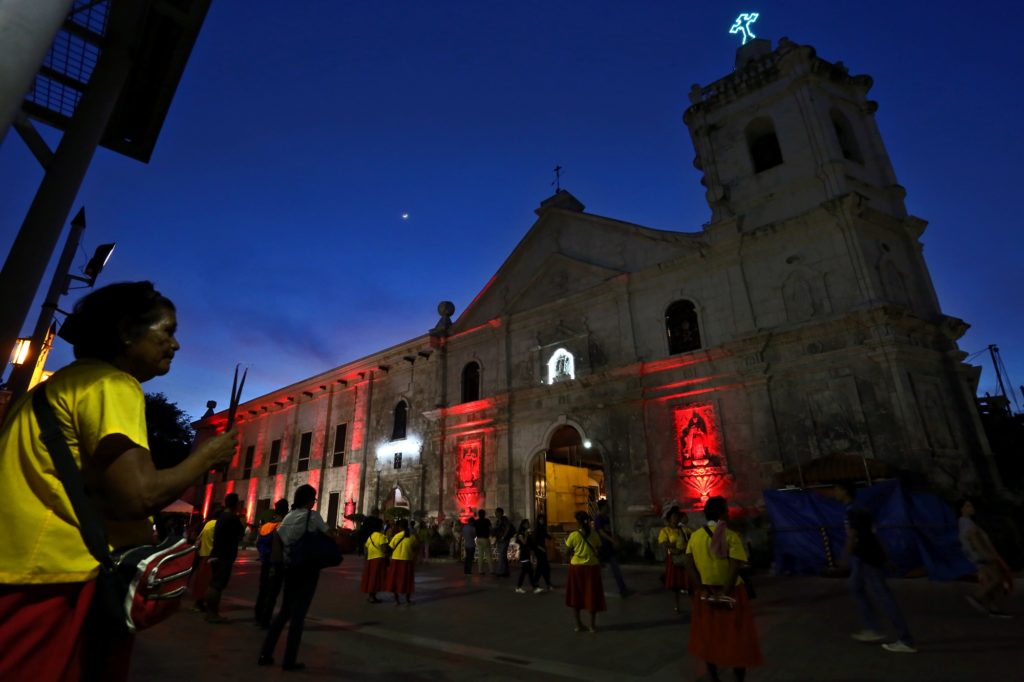
The facade of the church is a blending of Muslim, Romanesque and neo-classical features. The Basilica Minore del Sto. Niño is lighted in red. | CDN PHOTO/JUNJIE MENDOZA
St. Therese of the Child Jesus Parish
Pasteur cor. Edison Sts. Lahug, Cebu City
Compared to the other structures in the area, the St. Therese of the Child Jesus Parish is new.
It was built by Dr. Virgilio Gonzales and his wife in 1938, as a fulfillment of their promise to St. Therese.
Like most churches in World War II, it was partially damaged by the numerous bullets and shrapnels brought about by the war.
The facade with the statue of St. Therese, the belltower and the pillars were miraculously left unscathed.
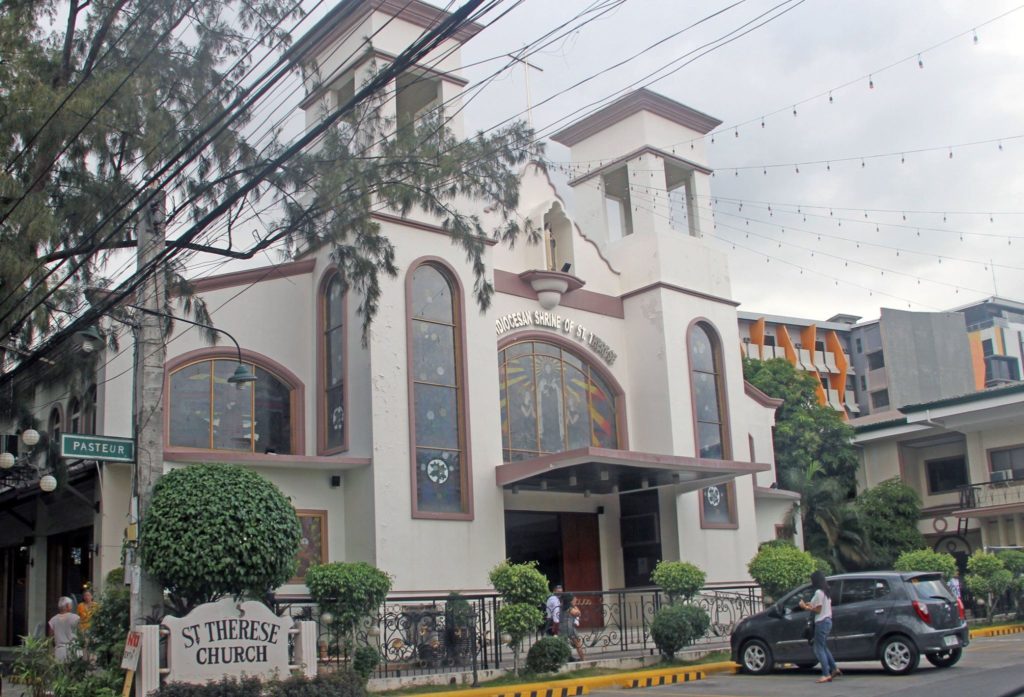
Archdiocesan Shrine of St. Therese Church. CDN Digital photo | Brian J. Ochoa
National Shrine of St. Joseph
Mandaue City, Cebu
The National Shrine of St. Joseph features a statue of St. Joseph and the Child Jesus beside him.
Styled in 18th-century ivory, it is believed to be the oldest statue of St. Joseph in the Philippines.
According to research, the national shrine was constructed in 1601. It houses one of the rarest religious relics in the region, the lifesized Señor de Cena (The Last Supper) featuring Jesus and his 12 apostles.
Located in front of the altar, the statue is a stunning work of religious art.
Its architecture is a mixture of Graeco-Roman and baroque influences and its structure is a mixture of coral stones and concrete.
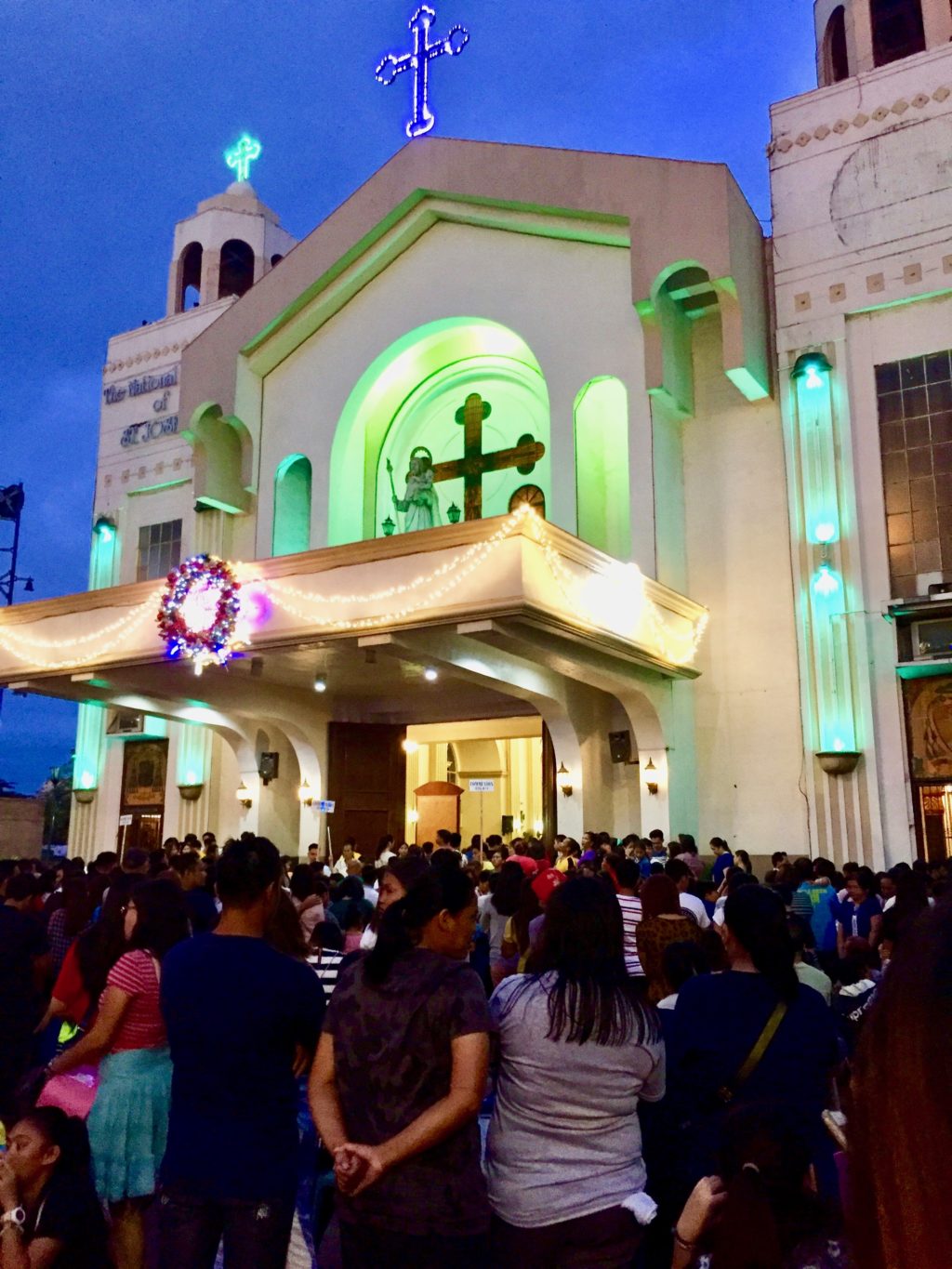
Catholics attend a dawn mass at the National Shrine of St. Joseph in Mandaue City on December 16, 2019. CDN Digital photo | Brian J. Ochoa
The National Shrine of Nuestra Sra. Virgen dela Regla Parish
Lapu-Lapu City
The original Virgen dela Regla Parish was built during the Spanish colonial years between the years 1735-1744 and was made of Mactan coral stone cut in square blocks.
Dutch priests that were later assigned to the parish decided to build a new one made of plaster and concrete in 1960 instead of repairing the old church which was damaged by World War II.
The remainder of the old church, however, still exists, a convent that was built in 1855. It is a beautiful example of the Spanish colonial mission complex and is spacious and solid.
Share your photos of these historic and beautiful churches in Cebu! Comment them in the comments section of this video.
